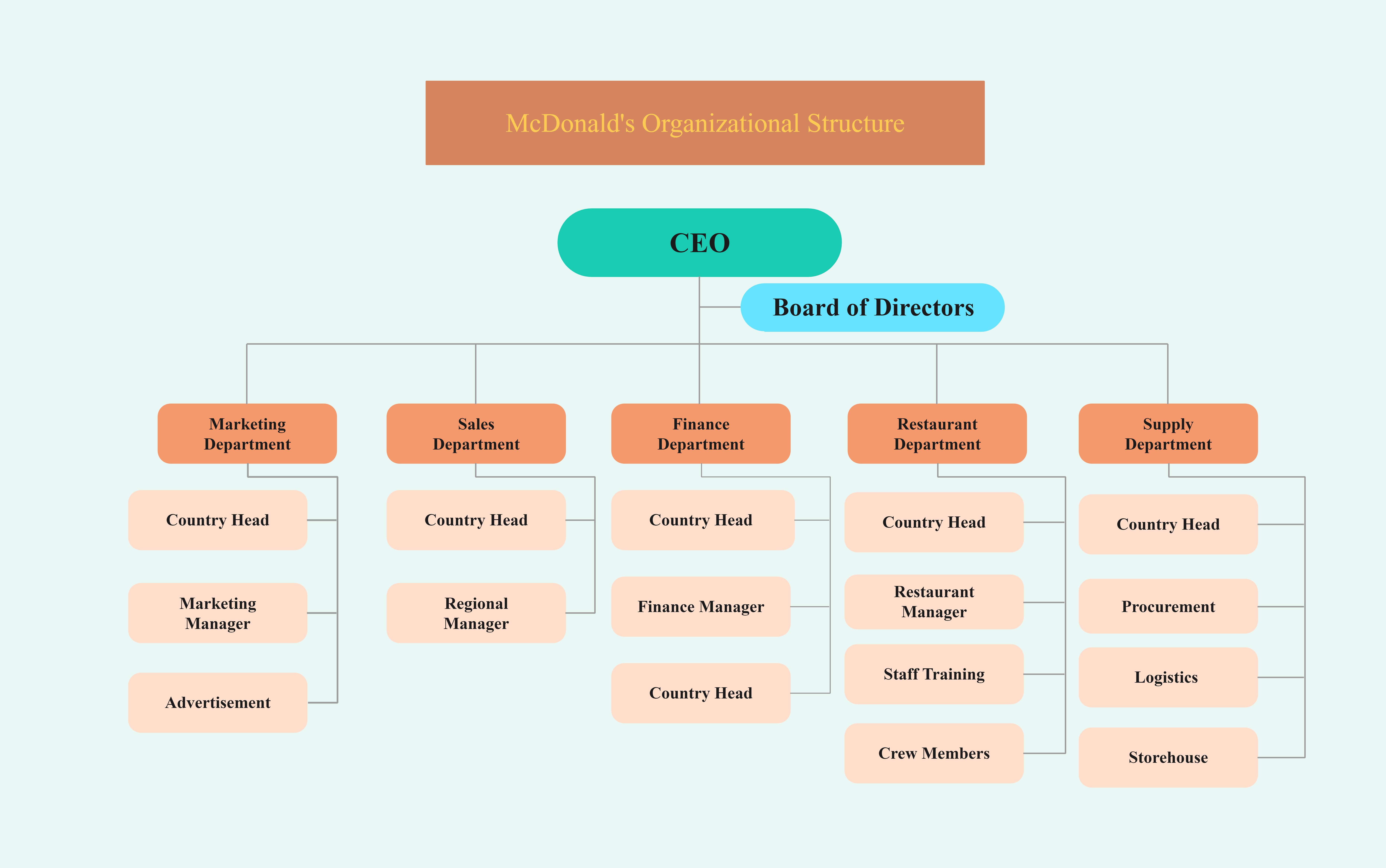Middle Management: A Key Component Of Effective Organizational Structure And Employee Development

Table of Contents
Middle Management's Contribution to Effective Organizational Structure
Middle managers act as the linchpin connecting upper management's strategic vision with the day-to-day operations of frontline teams. They translate complex directives into actionable plans, ensuring smooth workflows and efficient resource allocation. Their success hinges on clear communication and the ability to effectively delegate tasks.
- Translating Strategy into Action: Middle managers interpret high-level strategies, breaking them down into manageable tasks and assigning them to their teams. This ensures that everyone understands their role in achieving overarching organizational goals.
- Monitoring Progress and Reporting: They regularly monitor progress, identify roadblocks, and report back to upper management, providing crucial feedback on project timelines and resource needs.
- Problem-Solving and Decision-Making: They address day-to-day challenges, making decisions within their scope of authority to maintain operational efficiency and prevent disruptions.
Optimizing Communication Channels
Effective organizational communication is paramount. Middle managers play a critical role in facilitating this, employing strategies to ensure information flows seamlessly up, down, and across the organizational structure.
- Regular Team Meetings: Scheduled meetings provide a platform for updates, brainstorming, and problem-solving, fostering a sense of teamwork and shared purpose.
- Open-Door Policies: Creating an environment where employees feel comfortable approaching their manager with questions or concerns promotes open communication and trust.
- Transparent Reporting: Regular, transparent reporting on progress, challenges, and successes keeps everyone informed and aligned, fostering accountability and collaboration. Using effective communication strategies, including regular feedback sessions and streamlined reporting systems, is crucial for efficient workflow.
Delegation and Empowerment
Effective task delegation is crucial. Empowering team members by delegating appropriate tasks not only lightens the middle manager's workload but also fosters employee growth and development.
- Matching Tasks to Skills: Delegating tasks that align with individual team members' skills and experience maximizes efficiency and encourages professional growth.
- Providing Clear Instructions and Support: Ensuring clarity in instructions and providing necessary support empowers employees to succeed while preventing misunderstandings and errors.
- Offering Regular Feedback and Recognition: Acknowledging efforts and providing constructive feedback reinforces positive behaviors and motivates team members to excel. This fosters employee empowerment and builds strong team leadership.
Middle Management's Impact on Employee Development and Growth
Middle managers are instrumental in nurturing employee talent and fostering a positive work environment conducive to growth. Their role extends beyond simply managing tasks; it includes mentoring, coaching, and creating a supportive culture.
- Mentoring and Guidance: Middle managers act as mentors, guiding and supporting employees in their professional development.
- Identifying Development Opportunities: They actively identify employees' strengths and weaknesses, recommending training or other opportunities for professional growth.
- Providing Constructive Feedback: Regular feedback, both positive and constructive, helps employees understand their performance and identify areas for improvement.
Mentorship and Coaching Strategies
Effective mentorship and coaching require a strategic approach. Middle managers can use various strategies to maximize their impact on employee development.
- Regular Check-ins: Consistent check-ins provide opportunities for informal feedback, addressing concerns, and tracking progress.
- Formal Performance Reviews: Structured performance reviews offer a more formal setting for evaluating achievements, setting goals, and identifying areas for improvement.
- Skill-Building Initiatives: Identifying specific skill gaps and providing opportunities for training and development is crucial for employee growth. Investing in employee mentoring and leadership coaching programs significantly contributes to talent development.
Creating a Positive Work Environment
The actions of middle managers significantly influence employee engagement, morale, and retention. Creating a positive and supportive environment is essential.
- Promoting Collaboration and Teamwork: Fostering a collaborative spirit encourages teamwork and shared success, leading to higher morale and improved productivity.
- Recognizing and Rewarding Achievements: Acknowledging and rewarding employee contributions boosts morale and reinforces positive behaviors.
- Addressing Conflicts and Concerns Promptly: Addressing workplace conflicts and concerns effectively prevents negativity from impacting team morale and productivity. This leads to increased employee engagement, a positive work culture, and improved employee retention.
Challenges Faced by Middle Management and Strategies for Success
Middle managers often face significant challenges, balancing competing priorities, managing limited resources, and navigating pressure from both above and below. Effective strategies are needed to overcome these obstacles.
- Conflicting Priorities: Juggling multiple priorities requires effective prioritization and time management skills.
- Limited Resources: Working with limited resources necessitates creative problem-solving and resource allocation strategies.
- Pressure from Above and Below: Balancing the expectations of upper management and the needs of their team requires strong communication and diplomacy.
Effective Time Management Techniques
Effective time management is paramount for middle managers. Utilizing proven techniques can help them stay organized and productive.
- Prioritization Techniques: Employing methods like the Eisenhower Matrix (urgent/important) helps prioritize tasks effectively.
- Time Blocking: Allocating specific time blocks for different tasks improves focus and prevents multitasking overload.
- Delegation and Automation: Delegating tasks and utilizing automation tools frees up time for more strategic activities. Developing strong time management skills and prioritizing tasks effectively contribute to better work-life balance.
Developing Leadership Skills
Continuous learning and professional development are crucial for middle managers to enhance their leadership capabilities.
- Management Training Programs: Participating in formal management training programs provides valuable skills and knowledge.
- Mentorship Opportunities: Seeking out mentors provides guidance and support for professional growth.
- Networking Events: Networking allows middle managers to learn from others and build valuable professional relationships. Investing in leadership development and management training is crucial for professional growth.
Conclusion: Investing in Middle Management for Lasting Organizational Success
Middle management plays a pivotal role in organizational structure and employee development. Their ability to effectively communicate, delegate, mentor, and create a positive work environment directly impacts productivity, employee satisfaction, and overall organizational success. Investing in middle management training and development programs is not just an expense; it's a strategic investment that yields significant returns in terms of improved organizational performance and employee retention. By strengthening your middle management teams and implementing effective middle management strategies and employee development programs, you are investing in lasting organizational growth. Start building a stronger, more effective organization today by focusing on the crucial role of your middle management team.

Featured Posts
-
 How Ai Is Reshaping Wildlife Conservation A Double Edged Sword
Apr 23, 2025
How Ai Is Reshaping Wildlife Conservation A Double Edged Sword
Apr 23, 2025 -
 Understanding Michael Lorenzens Pitching Style And Success
Apr 23, 2025
Understanding Michael Lorenzens Pitching Style And Success
Apr 23, 2025 -
 Guardians Lane Thomas Impresses In Spring Training Debut
Apr 23, 2025
Guardians Lane Thomas Impresses In Spring Training Debut
Apr 23, 2025 -
 Aaron Judges Historic Home Run Show Yankees Smash Record With 9 Blast Game
Apr 23, 2025
Aaron Judges Historic Home Run Show Yankees Smash Record With 9 Blast Game
Apr 23, 2025 -
 Blue Origin Scraps Rocket Launch Due To Subsystem Problem
Apr 23, 2025
Blue Origin Scraps Rocket Launch Due To Subsystem Problem
Apr 23, 2025
